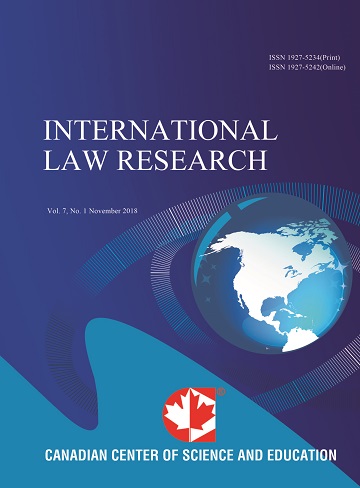The Individual in International Law: ‘Object’ versus ‘Subject’
- Solomon E. Salako
Abstract
There is uncertainty about the status of the individual in international law. The traditional positivist doctrine of international law is that States are the sole subjects of international law and that the individual is the object. The contemporary approach is that the individual is an original subject of international law and the owner of international individual rights. This approach relies for its justification on areas of international law such as investment protection treaties, intellectual property treaties, international human rights law, individual criminal liability in international law and Vienna Convention on Consular Relations where the individual has been brought into contact with international law. The objects of this article are: (i) to assess critically the various areas where the individual has been brought into contact with international law with a view to showing that the individual is not a full subject of international law; and (ii) to show that insofar as the individual possesses a limited locus standi in international law and a limited array of rights, that is, limited legal capacity, the proffered existence of an international legal personality of the individual is not only superfluous but also confuses international legal personality which involves the capacity to perform legal acts in the international sphere with legal personality in municipal law.- Full Text:
 PDF
PDF
- DOI:10.5539/ilr.v8n1p132
Journal Metrics
h-index (2017): 2
i10-index (2017): 0
h5-index (2017): N/A
h5-median (2017): N/A
Index
- CNKI Scholar
- COPAC
- CrossRef
- DTU Library
- EuroPub Database
- Excellence in Research for Australia (ERA)
- Ghent University Library
- Google Scholar
- Harvard Library
- Infotrieve
- Jisc Library Hub Discover
- LOCKSS
- Open J-Gate
- PKP Open Archives Harvester
- Publons
- ROAD
- Scilit
- SHERPA/RoMEO
- Stanford Libraries
- Ulrich's
- UniCat
- Universe Digital Library
- UoS Library
- WorldCat
Contact
- Joseph TaiEditorial Assistant
- ilr@ccsenet.org
